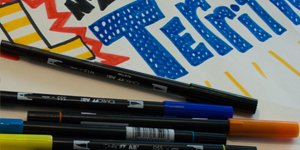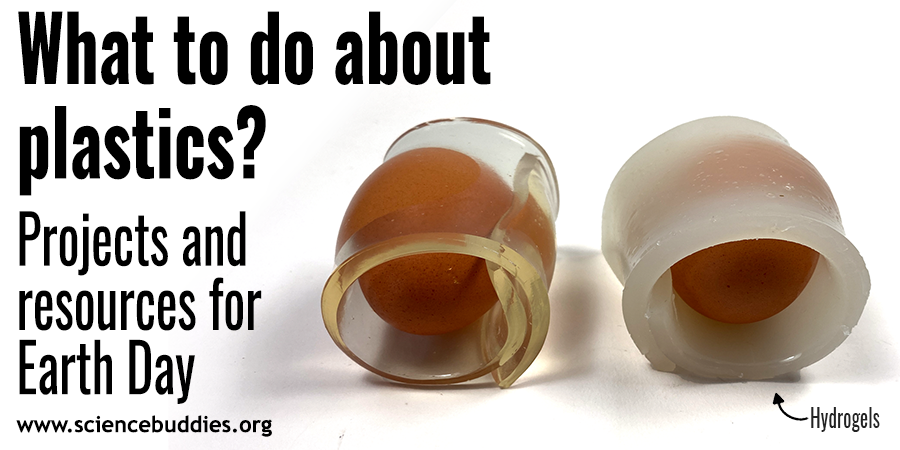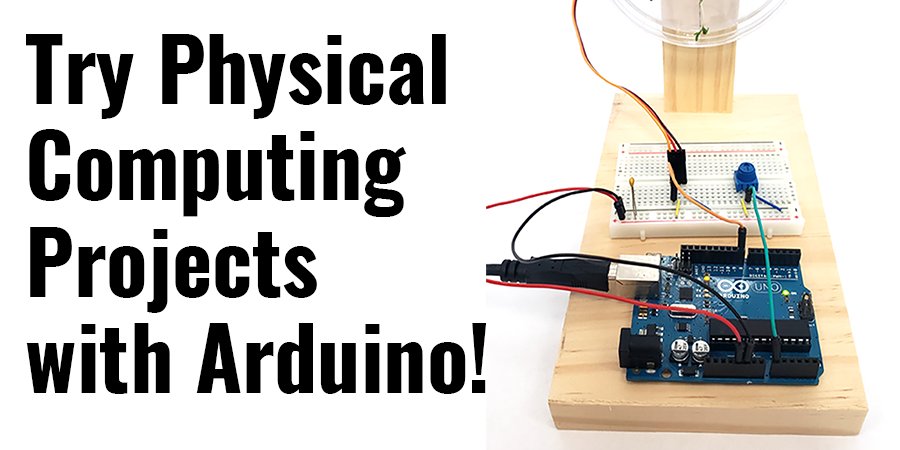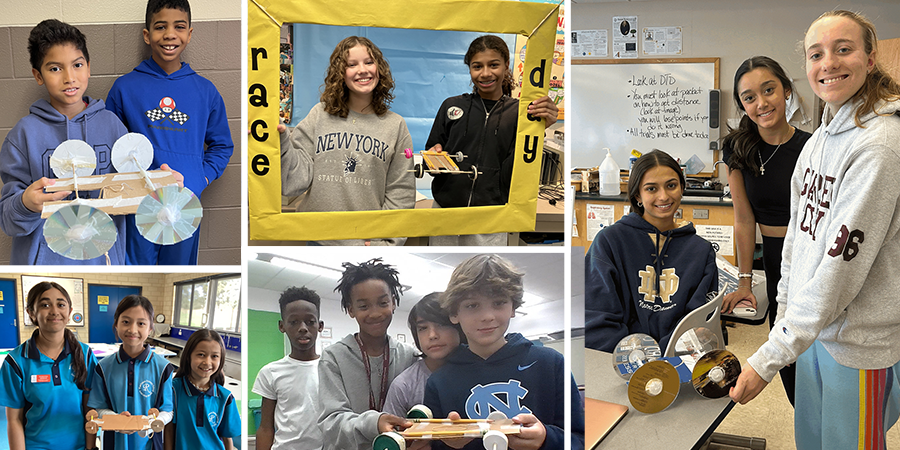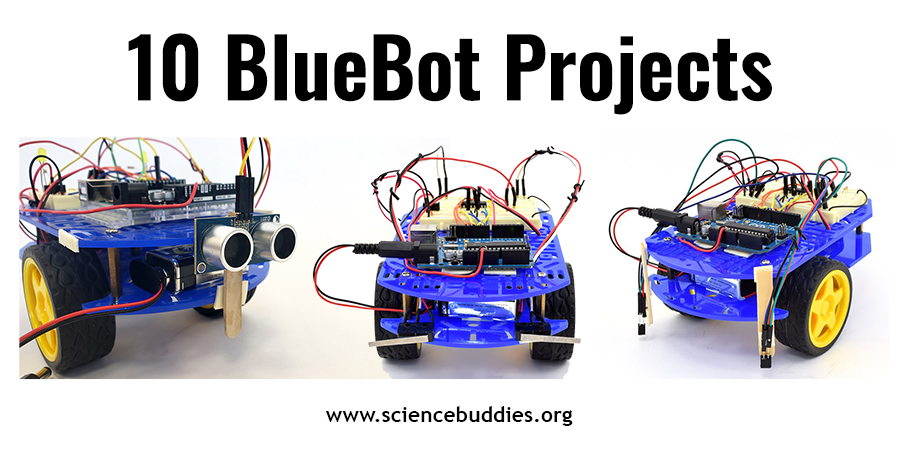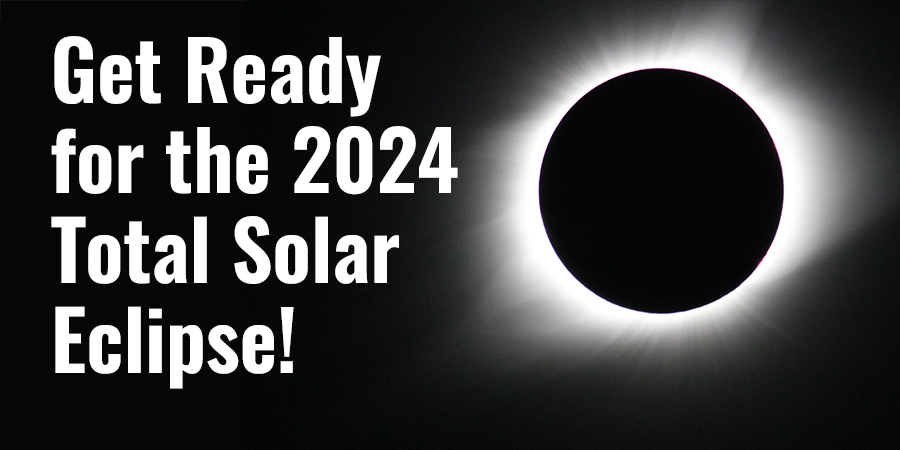Ensuring a Positive Science Fair Project Experience
Science fair projects let students learn, use, and demonstrate important science and reasoning steps, and the benefits of hands-on and active exploration compared to more passive modes of learning or rote memorization are well-documented. So why do so many parents scowl at the science fair project assignment? What makes the science project a stressor for many families rather than an anticipated and positive learning experience? Is it simply a matter of perspective or an incomplete understanding of what a science fair project is and should be? There are many steps teachers can take to help transform the science fair project experience, but what does it take, at home, to transform the science project assignment from something parents dread into something parents celebrate as a critical and invaluable step in their student's learning?
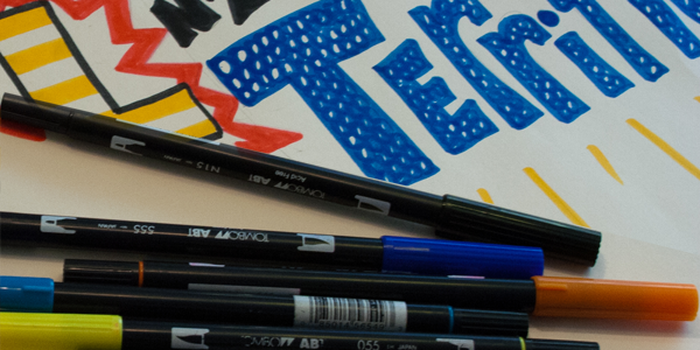
Social Media Lashes Out at the "Science Fair Project"
Have you seen it? The GoldieBlox Super Bowl ad, yes. The LEGO® Movie, yes. The tongue-in-cheek project display board bemoaning the science fair project process and citing a more than 75% dissatisfaction rate among students and parents, as measured by the number of students who cry and the number of parents who yell during the process? Probably.
You may have seen the project display board crop up on your favorite social media site. You may have been surprised to see it pop into your stream from distant corners of the country or globe, from parents and grandparents alike. You may have been surprised to see it crop up in the stream of a parent or friend who you know has a very engineering- or science- or technology- or math-oriented kid, a parent you know spends countless hours encouraging, lauding, and supporting her student's hands-on science and engineering projects—and proudly sharing those same projects with her friends and followers.
It happened to me. I first saw the "science project turmoil" project display board shared by the parent I would least expect to spare it a second glance, much less share it. The next morning, I saw the photo shared by someone else in a completely different part of the country, someone who doesn't even have school-age children. As friends of those friends weighed in with a comment or a thumbs-up on the post, notifications kept popping up (accompanied by a 'beep' on my system) letting me know how much "support" the photo was getting from other people who saw the photo and agreed enough to click 'Like,' or leave a comment, or share the photo on their own stream. I didn't see anyone rebutting the image or standing up on behalf of the virtues and values of hands-on science education—at least not in those two shares of the photo. Even from teachers, I saw "likes."
Puzzled by the near-instant wave of people latching onto the image and issue, I went to the source—the original photo posted in March 2011.
It is both fascinating and frightening to read through the comments on the original photo. There are, thankfully, some people who weighed in noting the positive nature of hands-on or active science education. There is, in fact, a comment by the board creator where it seems that, in part, her complaint is really aimed at the way science fair is presented in elementary school—at the fact that the "competition" aspect of science fair may overshadow the point of hands-on science and turn the science fair into something else, something that invites and encourages far too much parent involvement. Her comment (#48) is there, but as the turmoil board picked up steam anew last week, it appears that by and large, people saw the "turmoil board" and were compelled to join the wave of "why do a science project" comments, a tidal wave of anti-science education sentiment that took on new life with each new like.
Why Do a Science Project?
What gave the "turmoil board" steam when it resurfaced? What prompted people from all corners to share, reshare, like, and comment? If many of those people are people who actually support, encourage, and even enjoy hands-on science and engineering activities with their kids, you have to dig deeper to see what's really at issue here.
Take the science (or engineering) out of it, and the "project" stands alone, with the assumed "assigned" or "fair" being the silent partner in crime, the elephant in the room. The board creator even suggests that without a competitive fair, science projects could be approached differently for elementary school children, done more as family projects and explorations. In other words, it is specifically the school science fair project that is being projected as the cause of family turmoil.
The board, with its googly eyes overlooking the hand-drawn results diagram, goes on to explain why.
The photo got under my skin, maybe because it was shared (and liked) by people that I didn't expect to share (and like) it. It was shared and liked by people who I know value science education, people who I know are proactive and publicly involved in the education systems in their areas.
So why the widespread jump on the anti-science fair project bandwagon? What buttons did the "turmoil board" press?
Kids Doing Science
At Science Buddies, I am one of the non-scientists. I am exactly the kind of parent that might seem to fall into the "science projects cause family turmoil" camp simply because "science fair" isn't my forte—science fair puts me well out of my comfort zone.
Before Science Buddies, maybe I would have been drinking the science-causes-turmoil Kool-Aid. It is hard to know how I might have approached a science fair assignment before Science Buddies. I can't go backwards and manipulate the variables or set up a control to see how my family would have weathered science fair season without the benefit of knowing about the project ideas and resources available at Science Buddies.
Thankfully, there is Science Buddies.
As a parent of elementary and middle school children, I have, over the last few years, done and witnessed a wide range of science and engineering projects with my kids, ones that have been completed for science fairs and ones that we have done together as family activities.
My lack of engineering and electronics experience didn't stop us from tackling toothbrush robots, light-following Bristlebots, a crystal radio, pencil dimmer switches, play dough electronics, and more. That doesn't mean I didn't wonder with each project if I knew enough to guide the activity or help troubleshoot problems that might come up with the independent (science fair) projects. But, all in all, science fair projects in my house have gone smoothly and been positive experiences all around.
So, where was the turmoil?
There was much more angst with the "build a mission" project, a California History assignment in the 4th grade and a clay roof that took hours with a hair dryer to try and harden. There was plenty of angst any time an assignment to "dress up as your historical subject" came home. (We didn't happen to have Ben Franklin-suitable attire on hand.) Making a half dozen artifacts to go along with a history research project certainly took as much time as the science fair project. Indeed, there have been flurries and scurries with a wide range of creative and "craft"-oriented exercises and assignments.
So what's the problem with the science fair? And, more importantly, what does it take to turn a standard science fair assignment into a positive, successful learning experience for students and a positive parenting experience for the grown-ups?
Helping Students (and Parents) Enjoy the Science Fair Project
As I watched the fervor over science fair mount, triggered by a marker-drawn project display board, I wanted to pass out Science Buddies stickers to every person who clicked "like" or "share" or wrote a comment commiserating with the horrors of science fair.
I wanted to grab some markers and make my own Project Display Board of all the things I know that Science Buddies offers that can help remedy the problem, all the tools and guidance that can transform the science project into something students and parents look forward to as a fun way to get really hands-on with a cool science question.
If only all of those parents knew about Science Buddies, I kept thinking. Of course, I work for Science Buddies. So I have an inside view. I know that more than fifteen million other people, including students, teachers, and parents also know about Science Buddies and count the non-profit and its free, online resources as a trusted source. I know they visit the site each year when science fair rolls around.
I can only assume that the "turmoil board" creator may not know about Science Buddies and may not know about the Topic Selection Wizard.
We need Science Buddies stickers. We need a badge kids can sew on to a troop uniform. We need to go viral in the same way that the "turmoil board" went viral.
Science Buddies and the Student Science Fair Project
Science Buddies has a whole set of keys that can help transform the science fair "turmoil" into a successful experience for students and parents. In part, parents have to get beyond their own fear of science and their own assumptions about science fair. You don't have to be a science expert to help an elementary student do a school science project. But you do have to have the right idea about what a science project is, what it can be, and how to approach it to maximize the learning experience—and enjoyment—for your student. You also have the right to expect that a science fair project isn't simply a homework assignment, something sent home with a due date several weeks in the future and not integrated at all in the day-to-day classroom.
For science fair projects to be successful, teachers have to ensure that projects are integrated into the classroom learning and monitored with clear schedules and check-ins that help students stay on track and also teach students how to break a big project down into doable parts. Science fair projects should not be done the night before they are due. Ever.
There are a number of ways in which teachers can (and should) help smooth the science fair project experience. But in responding to the "turmoil board," the following reminders for parents and students can make a big difference in how the process goes at home:
- Plan ahead. This is a big stumbling block for many students and parents. Waiting until two days before the project is due to select a project or buy supplies is a guaranteed recipe for disaster (and family stress). Plus, waiting too late in the process limits what kind of project your student can do. The project your student might be most excited by might take weeks to complete. That doesn't necessarily mean it is a more difficult project, but projects in certain areas of science may take more time—plant biology projects, for example, or setting up and testing a microbial fuel cell for an environmental science project.
Note: proper scheduling of the project and assessing a student's progress throughout the project window is a teacher's responsibility and can really help alleviate science project stress, procrastination, and confusion. When properly scheduled and managed with in-class due dates and timelines, parents should not suddenly learn from a panicked student that the science fair project is "due tomorrow" and has not been started. (See the Science Fair Schedule Worksheet in the Teacher Resources area.) Parents can help students set up calendars and put time to work on various parts of the project on a schedule to help reinforce the time management and planning skills students are learning and using.
- Pick a great project idea. A half-baked project idea should not be the cause of science fair angst. At Science Buddies, there are more than 1,200 scientist-authored project ideas in more than 30 areas of science. Most of these project ideas offer background information to help kickstart a student's research and a full experimental procedure that has been tested and reviewed by a team of scientists.
- Hook into student interests. A student who does a project that fits in with an existing area of interest is far more likely to enjoy the science project process than a student who picks a project because it fits a parent's area of expertise or somehow fits what a parent thinks a science project "should be." This doesn't mean that your student needs to know if she is interested in biotechnology or aerodynamics. If she knows that, great. But if she doesn't, what are her hobbies? What does she like to do in her spare time? Are there issues she cares about?
Finding a science project related to an interest may immediately set the stage for a more exciting and engaging science fair project. Not sure where to look? The Topic Selection Wizard at Science Buddies helps match students to projects they may really enjoy—even in areas of science they might not have initially considered. Respond to a few simple statements that help the Wizard better understand your interests, and the Wizard will show you a set of projects that you might like. From video gaming to sports to robotics and zoology, there are great student projects in every area of science.
- Think beyond the box about what qualifies as a science fair project. Your student is not limited to doing the same project everyone else does, the same project an afterschool program demonstrated, or the same project you remember from your own science class. There are an infinite number of possible questions your student might ask and around which a science project may be built. Students are not limited to exploding volcanoes or seeing whether plants grow better with this liquid or that one. Here are a few examples of great science projects that might not sound like what you expect:
- kicking field goals with a ping pong catapult and mini footballs to learn more about physics on the football field
- picking up M&Ms in a simulation of camouflage and survival in the wild
- using magic sand to explore chromatography by observing how grape soda separates
- making a centrifuge from a salad spinner to investigate how a centrifuge separates glitter from a liquid
- building a LEGO device to see how common household granular materials mix or separate in a tumbler
- learning about circuits by lighting up play dough creations with LEDs
- investigating how the shape of butterfly wings changes how a butterfly flies and what this might mean for aircraft design
Those are just a few of the many, many projects that students might choose, projects that sound like a whole lot of fun!
- Pick a project that fits with the student's grade level/experience. Not every science fair project will results in a Nobel Prize-worthy conclusion or data set. School science projects are not supposed to be equivalent to what adult scientists are doing in the field or in research labs. Instead, a student's science project gives the student the chance to enact the scientific or engineering method and answer a science question. What is learned or observed by the student may be something small, but the student will have learned by doing, by putting the question to the test and gathering and analyzing data. Picking a project that is too hard is certain to cause problems, and choosing a project that is too simplistic for your student will not challenge her to really dig in and get involved in the process and project.
- Understand the role of the parent and the role of the student in the science project process. Your student's science project should not be your own project. Depending on your student's grade and age, you may need to be more or less involved in helping your student facilitate the experiment. But if an appropriate project is selected, your student should be able to work through the steps on her own. Your student needs to come up with the hypothesis (her words, not yours). Your student needs to decide what the project display board looks like and how the information gets presented. Your role may be that of driver (to the library) or buyer (materials, glue, and a project display board). Or maybe your role is to help your student talk out loud about what is happening in the project so that she is better able to understand and articulate what she observes, what problems she encounters, what questions she has, how her variables are related, or what else she may need to do in developing her procedure or analyzing her data. (For more information, see How to Help Your Science Student.)
- Review the basic steps of the scientific method or engineering design process yourself. Your student should be learning and reviewing these steps in class, but refreshing your memory about what is involved will help you feel more confident about the step-wise approach that most projects follow. Bookmark the Science Buddies Project Guide. It is your friend.
- Remember that being "right" is not the goal. A science project may not turn out the way your student expects. A hypothesis may not turn out to be supported by the experiment. It may seem like exactly the opposite of what your student thought was going to happen happened. This doesn't mean the project failed. If your student worked through the appropriate steps and learned something by doing the experiment, then the project may, in fact, have been a success. Teachers look to see that students have used and understood the scientific steps, understand what they were testing and why, and understand what the data showed—even if it is different than what the hypothesis predicted. Do not think your student has failed if the project takes an unexpected turn!
- Go to the science fair. Make an effort to go to the science fair to see your student's project on display, one project display board among all the others, and to celebrate the hard work and learning that went on as part of the project. Everyone who completes a science fair project deserves recognition for participation!
Here's to Science Fair Project Success in Your House!
Share Science Buddies with your student's parents, with your friends, colleagues, and family. Science Buddies can make a difference in how students and families perceive the science fair project.
While your students finish preparing their science fair projects for this year, I may work on a few project display boards of my own. As the "turmoil board" shows, you can certainly make a statement and communicate information about a project or a process using a project display board! That students learn to share their project results in this way is a great exercise at the end of the science project process!
Helpful Resources for Parents
The following resources and articles may help parents reconceptualize the importance, value, and process of a student's science fair project assignment:
- The Value of a Science Fair Project
- How to Help Your Science Student
- Parent Perspective: Understanding Your Role in Your Student's Science Project
- Perfecting the Project Display Board
- Putting Things in Perspective: Honest Science
- Giving Yourself the Best Chance for Success
- Science Fair Project Troubleshooting Guide
- Science Buddies Project Guide
- Science Kits
- Science Buddies in Action
Sign up to receive Science Buddies' monthly newsletter.
Categories:
You Might Also Enjoy These Related Posts:
- 15 STEM Gifts & Science Kits You'll Feel Good About Giving
- 13 Boat Science and Submarine Science Projects and Experiments
- July 4th STEM! Summer Science Picks for Independence Day!
- 12 Science Kits for Summer Science Experiments and Discovery
- 15 Science Projects to Make and Give for Father's Day
- Ready, Set, Go! (Awesome Summer Science Experiments)
- Awesome Summer Science Experiments
- 10 STEM Activities with Cardboard Tubes


